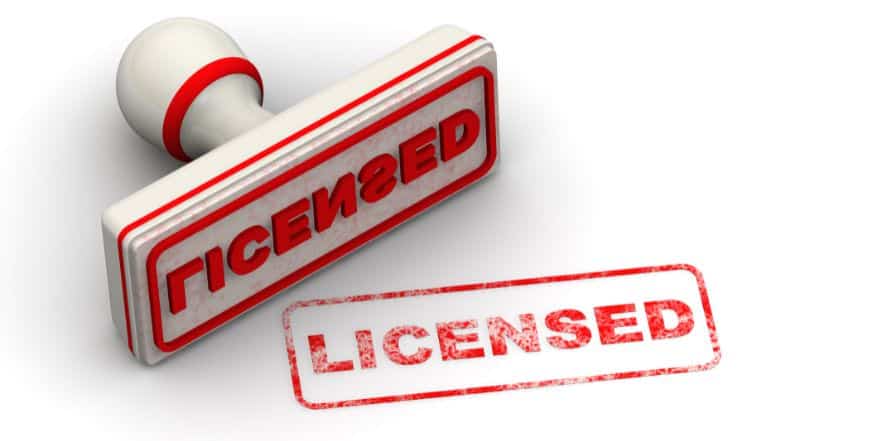Learn about the major online casino licensing bodies in 2025. Discover how regulators ensure fairness, security, and compliance in the global online gambling industry.
Online Casino Licensing Bodies
Contents
- 1 The Purpose and Function of Online Casino Licensing Bodies
- 2 Legal Frameworks and Enforcement Mechanisms
- 3 Major Global Online Casino Licensing Bodies
- 4 European Online Casino Licensing Bodies
- 5 Asian Regulatory Framework
- 6 Other Significant Jurisdictions
- 7 The Licensing Process for Online Casinos
- 8 Application Requirements and Procedures
- 9 Ongoing Compliance Requirements
- 10 What Online Casino Licensing Bodies Monitor and Regulate
- 11 Game Fairness and Technical Standards
- 12 Financial Security and Anti-Money Laundering Provisions
- 13 Player Protection and Responsible Gambling
- 14 How Casino Licenses Function in Practice
- 15 Jurisdictional Scope and Market Access
- 16 License Categories and Types
- 17 Benefits of Licensing for Different Stakeholders
- 18 Player Benefits and Protections
- 19 Operator Advantages and Market Positioning
- 20 Governmental Benefits and Social Responsibility
- 21 Challenges in Casino Regulation
- 22 Cross-Border Enforcement Issues
- 23 Technological Evolution and Regulatory Adaptation
- 24 The Future of Online Casino Licensing
- 25 Increasing Regulatory Sophistication
- 26 Harmonization and International Cooperation
- 27 Conclusion
Guardians of Regulatory Compliance in the iGaming Industry
The online casino industry has experienced extraordinary growth in recent years, necessitating robust regulatory frameworks to ensure fairness, security, and ethical operations. Online Casino Licensing Bodies play a pivotal role in this ecosystem by establishing standards, enforcing compliance, and protecting players across global markets. These regulatory authorities serve as the backbone of the legitimate online gambling industry, distinguishing reputable operators from rogue entities. Through careful oversight and stringent requirements, these institutions maintain the integrity of the sector while enabling its continued expansion within legal boundaries.

The Purpose and Function of Online Casino Licensing Bodies
Online Casino Licensing Bodies in the online casino sector serve as critical gatekeepers, ensuring that operators adhere to strict standards of conduct and operational integrity. These institutions play a multifaceted role in the gambling ecosystem, with responsibilities extending far beyond mere license issuance. Their primary function involves establishing and enforcing regulatory frameworks that protect players while maintaining industry credibility and operational fairness.
These authorities implement comprehensive monitoring systems to verify that licensed casinos operate within legal parameters. They conduct regular audits to ensure fair gameplay, proper financial management, and adequate security measures. Through these oversight mechanisms, regulatory bodies create a safer gambling environment while simultaneously legitimizing the industry in the eyes of governments and the public.
The demand for effective regulation has intensified proportionally with the industry’s growth. As online gambling platforms proliferate across jurisdictions, these regulatory organizations work diligently to maintain ethical standards and prevent exploitation. Their presence provides essential guardrails that allow the industry to thrive while protecting vulnerable individuals and deterring criminal elements.
Legal Frameworks and Enforcement Mechanisms
Online Casino Licensing Bodies derive their authority from legislative frameworks established by their respective jurisdictions. These legal structures empower them to issue licenses, conduct investigations, and enforce compliance through various mechanisms. Enforcement tools typically include monetary penalties, license suspension or revocation, and in extreme cases, criminal prosecution for fraudulent operators.
The effectiveness of these regulatory bodies hinges on their ability to maintain independence while collaborating with law enforcement agencies, financial institutions, and other governmental entities. This cooperative approach enables comprehensive oversight across all facets of online casino operations, from game mechanics to financial transactions.
Major Global Online Casino Licensing Bodies
The online casino industry operates under the supervision of numerous regulatory bodies worldwide, each with distinct jurisdictional scopes and enforcement approaches. Understanding these key authorities provides insight into the global regulatory landscape governing online gambling operations.
European Online Casino Licensing Bodies
Europe hosts several of the world’s most respected and influential gambling regulators. The Malta Gaming Authority (MGA) stands as one of the most prominent, issuing licenses that cover numerous European countries and setting standards that influence regulators globally.
Established operators frequently seek MGA licensing due to its robust reputation and broad jurisdictional recognition.
The United Kingdom Gambling Commission (UKGC) represents another gold standard in online gambling regulation. Known for its stringent requirements and player protection measures, the UKGC provides comprehensive oversight for one of the world’s largest regulated gambling markets.
Its licensing framework demands strict compliance with responsible gambling protocols, anti-money laundering provisions, and game fairness standards.
Denmark’s regulatory authority, Spillemyndigheden, established in 2000, operates under the Danish Ministry of Taxation’s supervision. This body meticulously regulates the Danish market with an emphasis on player protection, requiring operators to obtain specific licensing before offering gambling services to Danish citizens.
The Gibraltar Regulatory Authority represents another significant European licensing jurisdiction, particularly attractive to operators due to its favorable tax conditions coupled with robust regulatory standards.
Asian Regulatory Framework
In Asia, the Macau Gaming Inspection and Coordination Bureau (DICJ) serves as the central regulatory authority for the world’s largest gambling market. Reconstituted in 2003, this body provides guidance to both local and international operators while maintaining Macau’s status as a premier gambling destination. The DICJ issues operating licenses and continuously monitors compliance with established regulations.
Singapore’s Casino Regulatory Authority, formed in 2008, has significantly enhanced gaming security and reliability in the region. This body enforces strict measures to prevent criminal activity, exploitation, and underage gambling, with the authority to impose substantial financial penalties on non-compliant operators.
Other Significant Jurisdictions
Beyond Europe and Asia, other notable licensing authorities include the Curacao eGaming Authority, which offers a more accessible licensing pathway while still maintaining basic regulatory standards. In North America, state-specific regulatory bodies like the New Jersey Division of Gaming Enforcement (DGE) provide localized oversight, authorizing operators solely within their jurisdictional boundaries.
The Licensing Process for Online Casinos
Obtaining a gambling license involves a rigorous process designed to verify the operator’s integrity, financial stability, and technical capabilities. While specific requirements vary by jurisdiction, certain fundamental elements remain consistent across regulatory frameworks.
Application Requirements and Procedures
Casino operators seeking licensing must typically submit comprehensive applications documenting their corporate structure, ownership details, and business plan. Online Casino Licensing Bodies conduct thorough background checks on key personnel to identify potential criminal connections or problematic past behavior.
Financial documentation requirements typically include proof of adequate capitalization, banking relationships, and sustainable business models.
Technical infrastructure evaluations represent another critical component of the application process. Regulators assess security protocols, data protection measures, and game fairness mechanisms before granting operational approval.
These technical reviews often include independent testing of random number generators (RNGs) to confirm statistical randomness in game outcomes.
The application timeline varies significantly between jurisdictions, ranging from several months to over a year depending on regulatory complexity and the thoroughness of the vetting process. Costs similarly vary, with premium jurisdictions like the UK and Malta commanding higher fees than more accessible licensing options like Curacao.
Ongoing Compliance Requirements
Licensing represents merely the initial step in a continuous compliance journey. Licensed operators must maintain adherence to regulatory standards through regular reporting, system audits, and operational reviews.
Many jurisdictions require periodic license renewals, creating opportunities for comprehensive reassessment of the operator’s regulatory standing.
Failure to maintain compliance standards typically triggers escalating enforcement responses, beginning with warnings and potentially culminating in license revocation. This ongoing oversight ensures that operators cannot simply obtain licensing and subsequently abandon responsible practices.
What Online Casino Licensing Bodies Monitor and Regulate
Online Casino Licensing Bodies maintain comprehensive oversight across multiple operational domains, ensuring thorough compliance throughout the online casino ecosystem.
Game Fairness and Technical Standards
Central to regulatory oversight is verification of game fairness and statistical integrity. Online Casino Licensing Bodies require implementation of certified random number generators (RNGs) that undergo regular independent testing.
These technical evaluations ensure that game outcomes remain genuinely random and match the advertised return-to-player percentages.
Beyond randomness verification, regulators establish technical standards governing platform stability, game performance, and operational reliability. These specifications ensure consistent gameplay experiences while preventing technical manipulations that could disadvantage players.
Financial Security and Anti-Money Laundering Provisions
Online Casino Licensing Bodies enforce strict financial controls to prevent money laundering, fraud, and financial crime. Licensed operators must implement robust know-your-customer (KYC) procedures, transaction monitoring systems, and suspicious activity reporting protocols.
These requirements minimize criminal exploitation of gambling platforms while protecting the financial ecosystem’s integrity.
Financial stability verification represents another critical regulatory function. Licensing authorities typically mandate segregation of operational funds from player balances, ensuring that customer deposits remain protected even during potential business disruptions.
Many jurisdictions also require operators to maintain financial reserves proportional to their player liabilities.
Player Protection and Responsible Gambling
Modern regulatory frameworks place increasing emphasis on responsible gambling provisions and player protection measures. Licensed operators must typically implement self-exclusion programs, deposit limits, reality checks, and other tools designed to prevent problem gambling.
Many jurisdictions additionally require mandatory age verification protocols and proactive identification of potentially problematic gambling patterns.
Dispute resolution mechanisms represent another essential player protection element. Regulators often serve as mediators in unresolved conflicts between operators and customers, ensuring fair treatment and appropriate grievance handling.
How Casino Licenses Function in Practice
Casino licenses serve multifaceted purposes within the operational context, defining operational boundaries while conveying specific rights and obligations.
Jurisdictional Scope and Market Access
Each license carries a specific jurisdictional scope determining where the operator may legally offer services. Some licenses, like those issued by Malta, provide access to multiple markets, while others remain strictly limited to their issuing territory.
This jurisdictional limitation explains why many operators obtain multiple licenses to serve diverse geographic markets.
The New Jersey Division of Gaming Enforcement license, for example, only allows operations within New Jersey state boundaries, while a Malta Gaming Authority license provides broader European market access.
This variation in jurisdictional coverage significantly impacts licensing strategy for operators targeting specific player segments.
License Categories and Types
Most regulatory Online Casino Licensing Bodies offer multiple license categories tailored to different operational models. Common distinctions include B2C (business-to-consumer) licenses for direct player-facing operations versus B2B (business-to-business) licenses for software providers and platform suppliers.
This categorical approach allows for regulatory customization based on specific operational risks and market roles.
Further specialization often occurs through activity-specific licensing, with separate authorizations for casino games, sports betting, poker, and other gambling verticals. This specialized approach enables more targeted regulatory oversight tailored to each segment’s unique characteristics and risk profiles.
Benefits of Licensing for Different Stakeholders
The Online Casino Licensing Bodies system creates significant advantages for various stakeholders throughout the gambling ecosystem.
Player Benefits and Protections
For players, licensing provides essential safeguards ensuring fair gaming experiences and financial security. Licensed operators must maintain fair games with verified random outcomes, protecting consumers from rigged systems and manipulated results.
Financial protections, including segregated player funds and deposit safeguards, minimize the risk of losing money due to operator insolvency or misconduct.
Online Casino Licensing Bodies oversight also establishes clear complaint processes and dispute resolution mechanisms when conflicts arise. This structured approach to grievance handling ensures players have recourse beyond the operator’s internal customer service.
The existence of an authoritative third party that can intervene in disputes significantly enhances consumer confidence.
Operator Advantages and Market Positioning
From the operator perspective, licensing provides legitimate market access and legal operational certainty. Licensed status enables formal relationships with payment processors, software providers, and financial institutions that typically avoid unlicensed gambling entities.
This ecosystem access represents a crucial operational advantage unavailable to unauthorized operators.
Licensing also confers significant reputational benefits and consumer trust. Players increasingly recognize regulatory credentials as indicators of reliability and integrity, making licensing an important marketing differentiator.
This trust premium often translates into higher player acquisition rates and improved customer retention compared to unlicensed alternatives.
Governmental Benefits and Social Responsibility
Governments derive substantial benefits from formal licensing regimes, including tax revenue generation and economic development. Regulated gambling creates transparent financial flows that can be appropriately taxed and monitored, unlike underground operations.
This revenue stream often funds public services, responsible gambling initiatives, and community development projects.
Online Casino Licensing Bodies also provide mechanisms for addressing gambling-related social concerns. By establishing clear operational parameters and responsible gambling requirements, governments can better manage potential negative externalities while allowing regulated access to a popular entertainment activity.
Challenges in Casino Regulation
Despite their essential role, regulatory bodies face significant challenges in overseeing the rapidly evolving online gambling landscape.
Cross-Border Enforcement Issues
The inherently international nature of online gambling creates complex jurisdictional questions and enforcement difficulties. Regulators frequently encounter challenges when attempting to enforce restrictions against offshore operators targeting their citizens without proper licensing.
This jurisdictional complexity requires international cooperation and innovative enforcement approaches.
Regulatory arbitrage—where operators strategically select the most favorable licensing jurisdictions—presents another cross-border challenge. This practice can potentially undermine more stringent regulatory regimes when operators with lenient licenses target markets governed by stricter standards.
. Addressing this challenge requires greater regulatory harmonization and mutual recognition between jurisdictions.
Technological Evolution and Regulatory Adaptation
The rapid pace of technological advancement constantly introduces new regulatory considerations and potential vulnerabilities. Emerging technologies like cryptocurrency payments, blockchain-based games, and virtual reality gambling environments create novel challenges for existing regulatory frameworks
Regulators must continuously evolve their approaches to address these technological developments effectively.
Maintaining technical expertise within regulatory bodies represents another significant challenge. Regulators must invest in specialized knowledge and technical capabilities to properly evaluate increasingly sophisticated gambling platforms and security systems.
This expertise gap can potentially undermine regulatory effectiveness when oversight personnel lack sufficient technical understanding.
The Future of Online Casino Licensing
The regulatory landscape continues to evolve rapidly, with several emerging trends shaping the future of online casino licensing.
Increasing Regulatory Sophistication
Licensing frameworks are becoming increasingly nuanced and technically sophisticated. Modern regulatory approaches increasingly leverage data analytics, automated monitoring systems, and real-time compliance verification.
This evolution toward “regulation by data” enables more precise oversight while potentially reducing compliance burdens through automation.
Jurisdictional competition is simultaneously driving regulatory innovation as Online Casino Licensing Bodies seek to balance effective oversight with operational attractiveness. Leading regulatory frameworks increasingly emphasize principles-based approaches that focus on outcomes rather than prescriptive requirements.
This flexible methodology potentially accommodates technological evolution more effectively than rigid rules-based systems.
Harmonization and International Cooperation
Growing recognition of cross-border challenges is driving greater regulatory collaboration between jurisdictions. Multilateral information sharing, standardized technical requirements, and mutual recognition agreements increasingly characterize the international regulatory landscape.
This cooperative approach potentially reduces regulatory fragmentation while improving enforcement effectiveness.
Standardization initiatives led by industry associations and technical bodies are simultaneously establishing common frameworks for responsible gambling tools, security protocols, and compliance reporting.
These shared standards facilitate multi-jurisdictional operations while maintaining consistent player protections across different licensing regimes.
Conclusion
Online Casino Licensing Bodies perform an indispensable function in balancing industry growth with consumer protection and social responsibility. Through comprehensive regulatory frameworks, these institutions establish the foundation for a sustainable, legitimate online gambling ecosystem. Their continued evolution and adaptation to emerging technologies and market developments remain essential for maintaining the industry’s integrity.
For players, understanding licensing provides crucial insight into an operator’s legitimacy and commitment to fair play. By selecting casinos regulated by reputable authorities, consumers can enjoy greater confidence in game fairness, financial security, and responsible operational practices. This regulatory infrastructure, though largely invisible to casual users, underpins the entire online gambling experience.
As the industry continues its technological evolution and geographic expansion, Online Casino Licensing Bodies will face ongoing challenges requiring innovative regulatory approaches. Their success in addressing these challenges will significantly influence the future development of online gambling—determining whether it continues as a well-regulated, legitimate entertainment option or fragments into competing regulatory regimes of varying effectiveness.

















